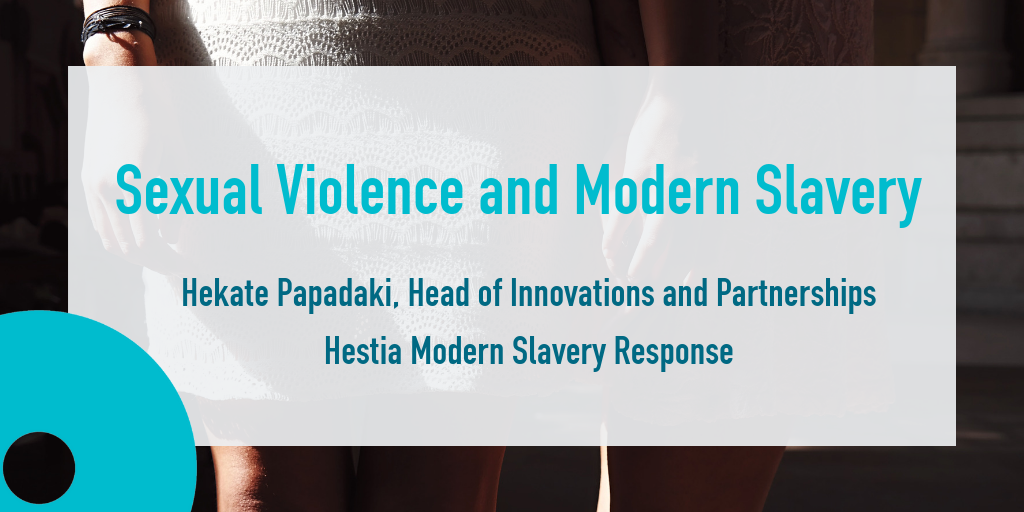Written by Hekate Papadaki, Head of Innovations and Partnerships at Hestia.
Over the past year, the #MeToo movement has finally encouraged open discussions about sexual violence and bodily autonomy in nearly every field. Although this is extremely positive and long overdue, we have a long way to go to recognise the true scale and different forms of sexual violence that we are oblivious to on a daily basis. Modern slavery, a hidden crime the scale of which in the UK we are only just beginning to grasp, conceals some of the most horrendous types of sexual violence.
Last year, Hestia supported nearly 1,200 adult victims of modern slavery in London. Most of them had been sold for sex, raped several times a day, every day of the week, sometimes for years or even decades. Some had lived as sex slaves from childhood through to adulthood. We supported men, women and transgender women who were abused in this way. Overwhelmingly, however, the victims were female.

The stories of how these women came to be exploited were varied and so were their backgrounds; we supported a number of young women from poor economic backgrounds who tried to escape forced marriages. They ran off with men who promised them love and freedom and ended up selling them as sex slaves. We have also supported educated women who believed they were coming to the UK to study. As a way to get them here, a friend or relative living in the UK offered to help with accommodation or by paying for their flights. That “help” ended up being a trap, a way to lure them to a country where they had no one to look for them if they went missing and no way of knowing where to turn for help. Several other women were sold by family members directly to their exploiters and then forced into prostitution.
Many of these women became pregnant as a result of their rape. Some were forced to have abortions. Others were abandoned when they were too far into their pregnancy and were no longer considered a valuable commodity. For others, the desire to protect their unborn child gave them the strength to escape. 1 in 4 women we support come to us pregnant.
Aside from the physical signs of the sexual violence these women have endured – scars, FGM, sexually transmitted infections, HIV being amongst them – the mental health trauma they carry can be considerably harder to live with. Some require years of support just to be able to undergo a simple health examination because they are terrified of any physical contact. Nearly all of them require access to mental health support to develop coping strategies.
Sexual violence is also very common for men who are victims of modern slavery. Dozens of the men in our service were used as sex slaves, abused by both men and women who were willing to pay to assault them. However, even those exploited for other types of slavery, such as forced labour or domestic servitude, were often subjected to sexual violence. In our “Underground Lives: Male victims of modern slavery” research in 2018, we found that instances of rape and secondary sexual exploitation amongst men were far more common than the recorded numbers suggest. An expert psychotherapist from the Helen Bamber Foundation told us “rape is such an effective tool of subjugation, it breaks your spirit so effectively, that traffickers use it a lot.”
Sexual exploitation is the second most common type of modern slavery identified in the UK. According to the National Crime Agency (NCA), last year 1305 adults and 626 children were identified as likely victims of this violence. This number is only the tip of the iceberg: the hidden numbers of people exploited as slaves in the UK are estimated to be tens of thousands more than those identified every year. What’s more, people exploited as slaves are often subjected to sexual violence even if that’s not how their exploiters are making a profit.
Modern Slavery happens everywhere in the UK and learning to identify the signs of exploitation can help bring the people suffering this abuse out of the shadows. Many of the people we support only managed to escape when a member of the public realised they were being exploited and notified the police. You too can learn to spot the signs of modern slavery. If you are worried that a person is being exploited, please call The Salvation Army on 0300 303 8151.


